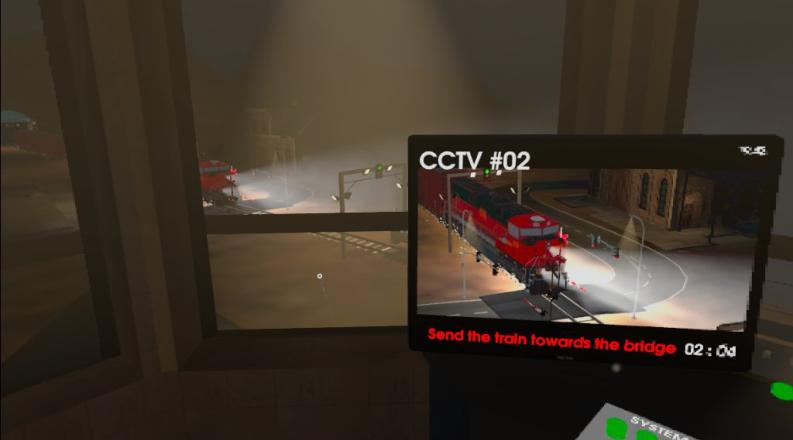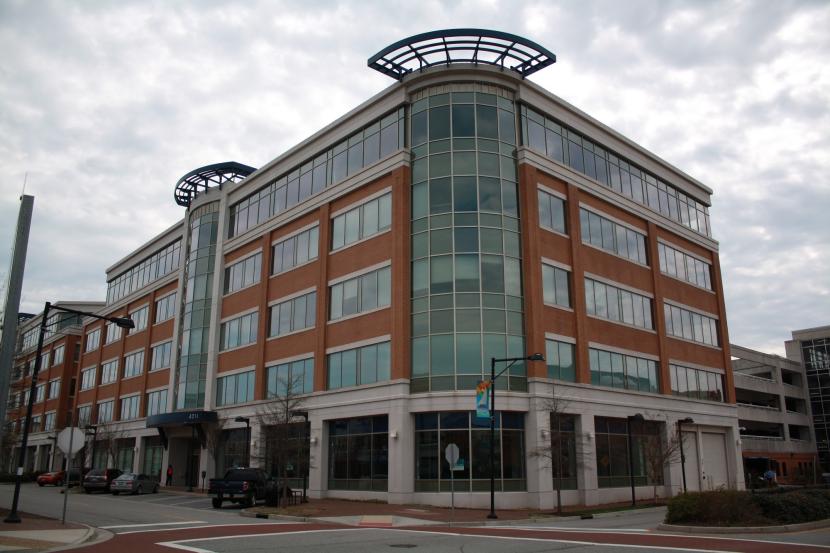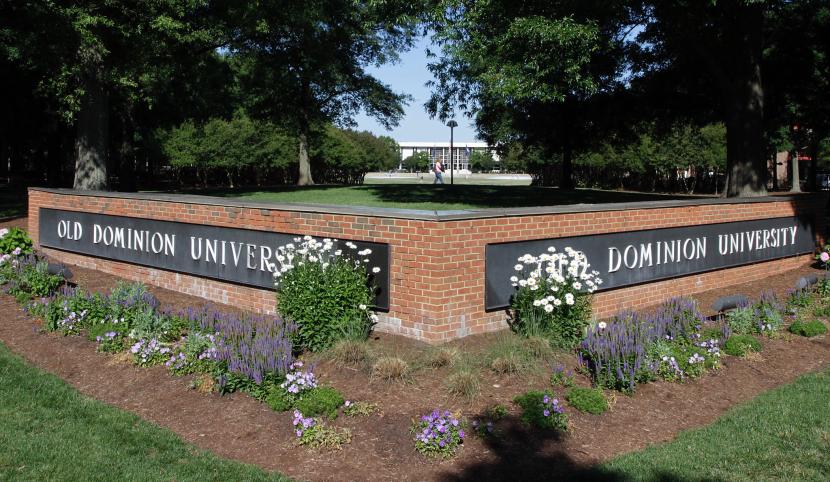Research into the moral and ethical dilemmas posed by situations like the "trolley problem" are at the root of the study.
By Amy Matzke-Fawcett
A group of faculty researchers has received a grant to use virtual reality (VR) to merge tough philosophical questions with technological accessibility.
Andrew Kissel, assistant professor in the Department of Philosophy and Religious Studies in Old Dominion University's College of Arts and Letters; Krzysztof Rechowicz, research assistant professor at the Virginia Modeling, Analysis and Simulation Center (VMASC); and John Shull, lead project scientist at VMASC, have been awarded a one-year, $100,000 Digital Humanities Advancement Grant from the National Endowment for the Humanities to help develop a prototype that will help researchers further develop tools for incorporating accessibility and accountability into technology using VR.
The project, although technologically advanced, has its roots in common philosophical thought experiments - most notably the "trolley problem" - where a person has to decide if they would, in theory, reroute a trolley away from a crash, allowing those on board to be safe but killing five people on the tracks, or do nothing, allowing those on board to be killed.
"The original purpose (of the trolley problem) was to get people to think about moral principles," Kissel said.
So how does a cornerstone philosophical problem match up with VR? It's not as far of a jump as one would think, Rechowicz and Shull said. Current technologies, like those being developed at VMASC, often have deep moral and ethical questions: with autonomous technologies like self-driving cars becoming more common, researchers and developers must incorporate accountability and philosophical thinking into projects.
"It's appealing to us because those decisions that need to be made by autonomous platforms, while a lot of scenarios for technology, need to start incorporating those decision-making processes," Rechowicz said.
Their project would allow for the use of VR to help people work through scenarios like the trolley problem and use the best data sets to influence the algorithms built into technology by researchers and developers, like those at VMASC.
"Within the machine-learning community there are a lot of (technological) jumps, but also ethics work that is ongoing," Shull said.
By using VR, researchers will be able to gather data on how study participants make decisions in real time about the scenarios. Additionally, the research will be made available to others doing similar work to build upon by sharing in open-source networks, and the VR module will be available to teachers and philosophers for education purposes.
"The idea is that you're missing the first 60% of what you need to do a study, and open-science frameworks let us share the content and data others can build from," Shull said.
Building those frameworks and bringing students into the process is another part of the research - although COVID-19 restrictions have cut back on the hands-on work students can do. Although it may not seem like a natural match, many interns from VMASC are humanities and philosophy students, which allows interdisciplinary thought and experimentation to flourish.
"Students are working on these ideas, and then they get to explore these projects and apply their learning when they're working at VMASC," Shull said. "They see the full cycle of production and get experience they might not get in a traditional degree program."
Related News Stories
ODU Awards Professors Multidisciplinary Biomedical Research Seed Funding
Two research teams were each awarded $42,000 grants. (More)
ODU School of Cybersecurity and Center for High Impact Practices Receive $3.9 million NSF Grant
Working with Tidewater Community College and Thomas Nelson Community College, the project will prepare 24 cybersecurity scholarship students for careers with the federal government. (More)
ODU Wins $105,000 Lumina Grant to Promote Equity
As part of the grant, Old Dominion has created 11 “design thinking” teams, each focusing on a specific issue or barrier with the goal of increasing the enrollment and retention of underrepresented students. (More)






